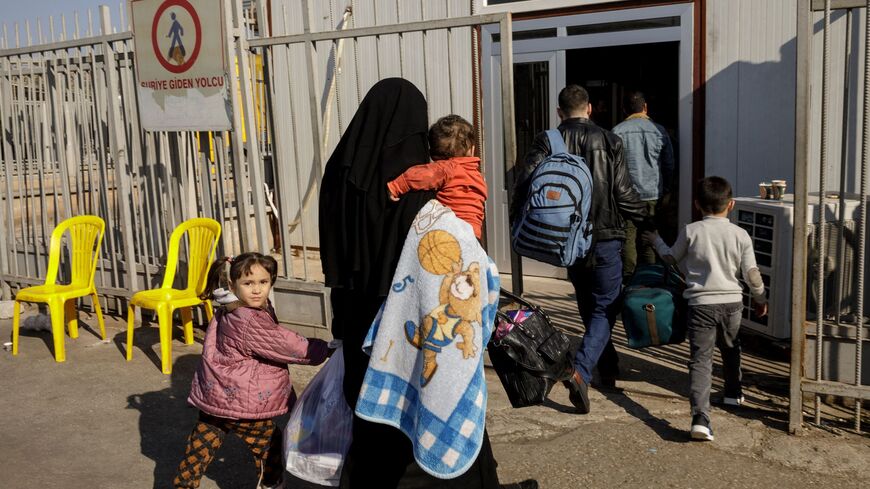ANKARA — Turkish authorities estimated this week that more than 30,000 Syrian refugees have returned to their home country following the two devastating earthquakes that struck southern Turkey and northern Syria, but the UN's refugee agency told Al-Monitor that their right to return should remain unhindered under legal protection status.
Turkey’s Defense Minister Hulusi Akar said Thursday that the temblors have unleashed a Syrian exodus from Turkey. “Syrian nationals are returning to their country. The number was initially at 10,000. We’ve now learned that the number has reached 30,000 and it keeps increasing,” Akar said.
Selin Unal, spokesperson for the United Nations High Commissioner for Refugees (UNHCR), stopped short of confirming the number to Al-Monitor, citing the agency’s absence at the border crossings between Turkey and Syria, but said that some Syrians were merely visiting their homeland and intend to return.
Unal told Al-Monitor, “Some of the Syrians living in [Turkey] also lost their families, friends, neighbors, and beloved ones inside Syria and might be willing to check on family and to attend burials and funerals.”
Under a special permit granted by Ankara this week, Syrians residing in Turkey’s disaster zone are allowed to visit Syria for up to six months.
“Therefore, they can return to Syria temporarily,” Unal added.
Home to the largest refugee population in the world, Turkey granted some 3.5 million Syrians temporary protection status, which gives them residency and work permits as well as access to social services.
“Many say they crossed into northwest Syria with the intention of a temporary visit and to plan to return [to Turkey] in the next few weeks,” said Unal.
The 11 Turkish provinces affected by the quakes were home to some 2 million Syrians, according to the official figures, in addition to more than 45,000 at seven temporary accommodation centers across the region. Those centers have also been opened to both Turkish and Syrian earthquake survivors, according to Unal.
The spokesperson said the agency didn’t have an exact number of Syrian refugees impacted by the earthquakes, “but we fear the number might be significant, given the epicenter of the quake was close to areas with high concentrations of refugees.”
The devastating quakes on Feb. 6 have fueled the already high-running anti-refugee sentiment in Turkey, after nationalist opposition leader Umit Ozdag claimed that Syrians went on looting sprees across the disaster zone. Reports of an alleged new refugee influx from Syria to Turkey following the quakes have further fanned the sentiment. Akar and other officials firmly denied those allegations.
According to UNHCR, those sentiments didn't hamper the quake response on the ground. “While we are witnessing the disasters’ effect on the lives of families, be they Turkish or Syrian, we also witness their collective response,” said Unal. “So, it’s not that there’s a difference between refugees and Turkish citizens. They are living, affected and responding in the same way.”
The twin earthquakes have killed more than 50,000 people and damaged or destroyed 90,000 buildings in Turkey, according to official figures. More than a million were displaced, and some have not even found a tent as refuge from freezing temperatures.
Urging the international community to step up the relief efforts, Unal said, “More help is on the way, but much more, much more is needed.”






